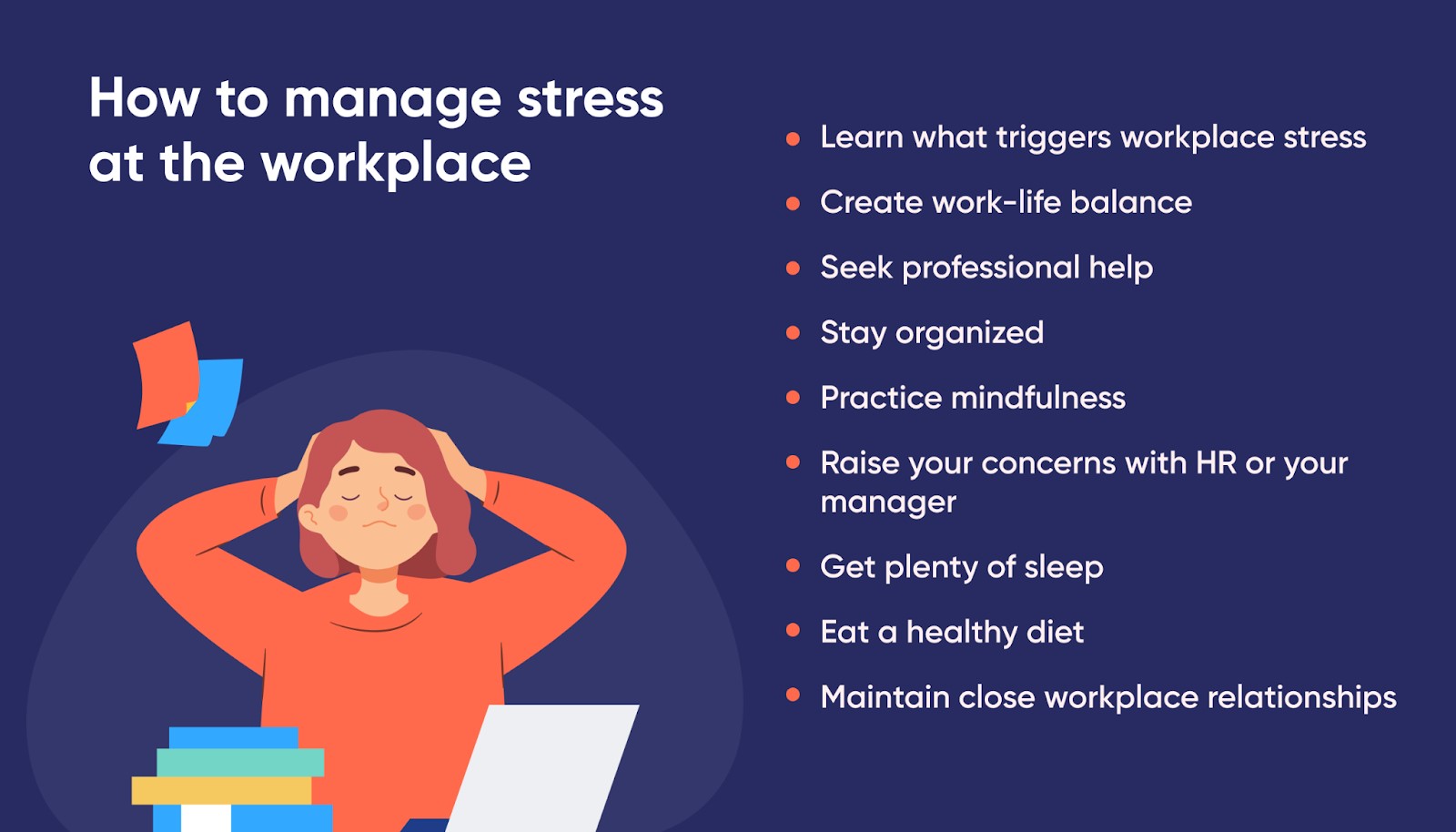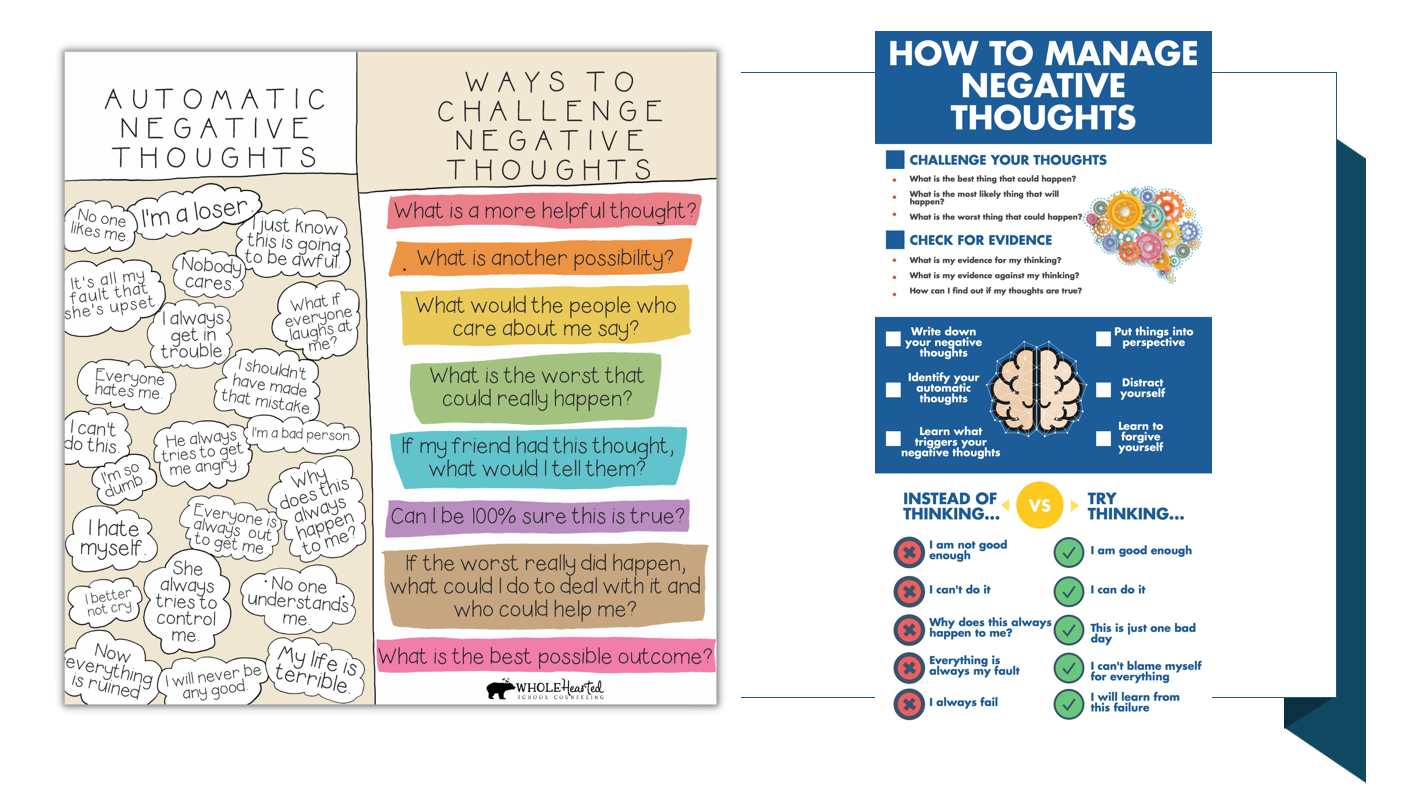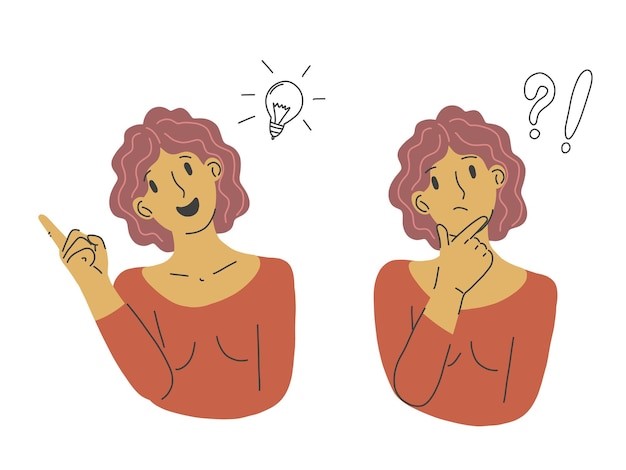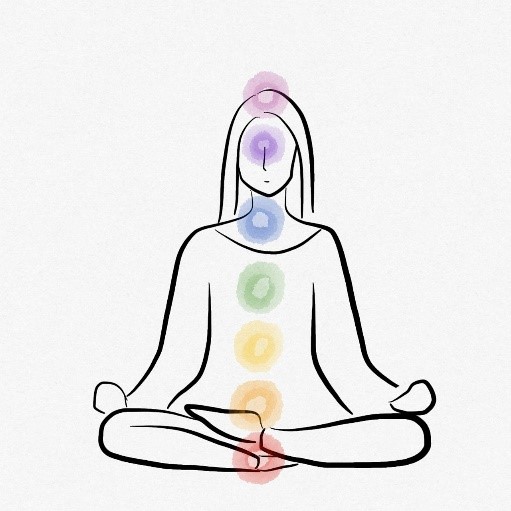Prevention and intervention measures
As preventive measures, it is important:
All this applied should prevent work-related stress, as the worker feels fulfilled and satisfied in his or her job.
One of the main things we should consider when intervening in work-related stress is to look for the cause.
As an intervention measure for work-related stress, training workshops could be held to plan and implement immediate changes at work, e.g. on the health effects of different working hours and to improve the design of working time regimes.

Stress prevention techniques
To prevent stress, the recommendations are:

Crisis intervention
Sometimes stressful situations get the better of us and we have to intervene to reduce stress. There are different techniques to do this:
- Mental relaxation and meditation techniques: These techniques create physiological changes in the body. The aim is that the person is able to focus their attention on activities and disconnect from the mental activity of everyday life that may be causing stress.
- Self-control techniques: The aim is to get the person in control of the circumstances and their behaviour, in order to reduce stressful situations by gaining control.
- Reorganising automatic thoughts: Negative automatic thoughts are a type of thoughts that suddenly appear in the person’s mind and are assimilated as rational. They are usually absolute and very difficult to change. In order to change these thoughts, the person can be asked to keep a record of these thoughts in their normal life, and then ask themselves a series of questions about these thoughts; What evidence do I have that this thought is true? When does this thought occur? What do I feel? What do I think? And finally, create an alternative thought that is more realistic to the situation. For example, a negative thought would be; I have not been able to do the job properly, I am useless. And its alternative would be; Although I have not been able to do this job correctly, I am sure I can do the others well, because I have always done most jobs correctly.
- Social support: Social relationships with the people around us help both psychologically and instrumentally.
- Good attitude: Having a good attitude is crucial in dealing with a stress crisis situation.

How to deal with criticism: responding to complaints
Criticism is normal in our society, and even more so in the work environment from our boss or colleagues.
This process is more complicated in teleworking, as criticism is not made directly to us, but via email or other digital platforms, which makes this dialogue much more trivial.
In order to respond to these complaints effectively and without raising our stress levels, we must, on the one hand, listen carefully to the complaint and ask for details of the complaint to find out what the sticking point is, while keeping a positive attitude at all times. Then, it is important to reach an agreement with the person making the complaint in order to change this sticking point.
The most important thing in the face of criticism is to have a positive and open attitude and not to take it personally.

Creativity and self-fulfilment at work
Workers have basic needs such as security and affiliation needs to create work ties that will help self-fulfilment.
Workers seek to thrive and self-fulfilment at work, and creativity is a key to this. Being inventive and original will help us to create optimal and problem-solving alternatives. It will also be important to accept the conditions and other workers to be able to fulfil oneself, to have a sense of humour, to be spontaneous, among others, in order to develop one’s full potential as a person and as a worker.

Emotional intelligence applied to work teams
There are certain situations in the work environment that tend to alter the emotional state of workers, as people influence each other’s emotional state.
Emotional intelligence encompasses qualities such as understanding one’s own emotions, the ability to know how to put oneself in the place of others and the ability to conduct oneself in order to improve the quality of life. It is the ability to regulate one’s own feelings and those of others and takes the form of a wide range of skills and traits such as empathy, interpersonal problem-solving, social skills, respect, etc.
The objective of emotional intelligence at work is to know how to handle situations using strategies that allow us to choose the best solution or option. Goleman explains that emotional intelligence accounts for 80% of a person’s success, and only 20% is attributed to intellectual intelligence. Productivity can increase by up to 20% when team members use emotional intelligence.

References
[1]
Medidas de prevención e intervención: R. Rodríguez y S. de Rivas (2011)
[2]
Técnicas para la prevención del estrés: S. Castro (2023)
[3]
Intervención en situaciones de crisis: (M. de la Peña ,2021)
[4]
Creatividad y autorrealización en el trabajo: Penagos- Corzo, J. C. (2007)
[5]
Creatividad y autorrealización en el trabajo: Maslow
[6]
Inteligencia emocional aplicada a los equipos de trabajo: Salovey y Mayer (1990)
[7]
Inteligencia emocional aplicada a los equipos de trabajo: Goleman
[8]
Inteligencia emocional aplicada a los equipos de trabajo: Estudio de Capgemini.


